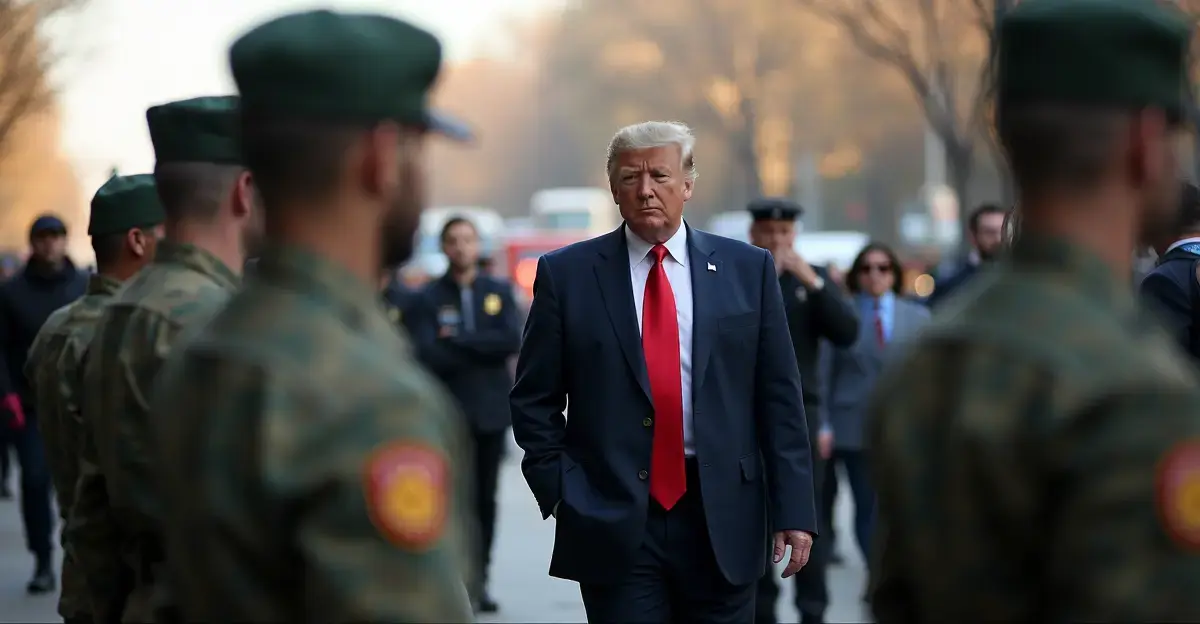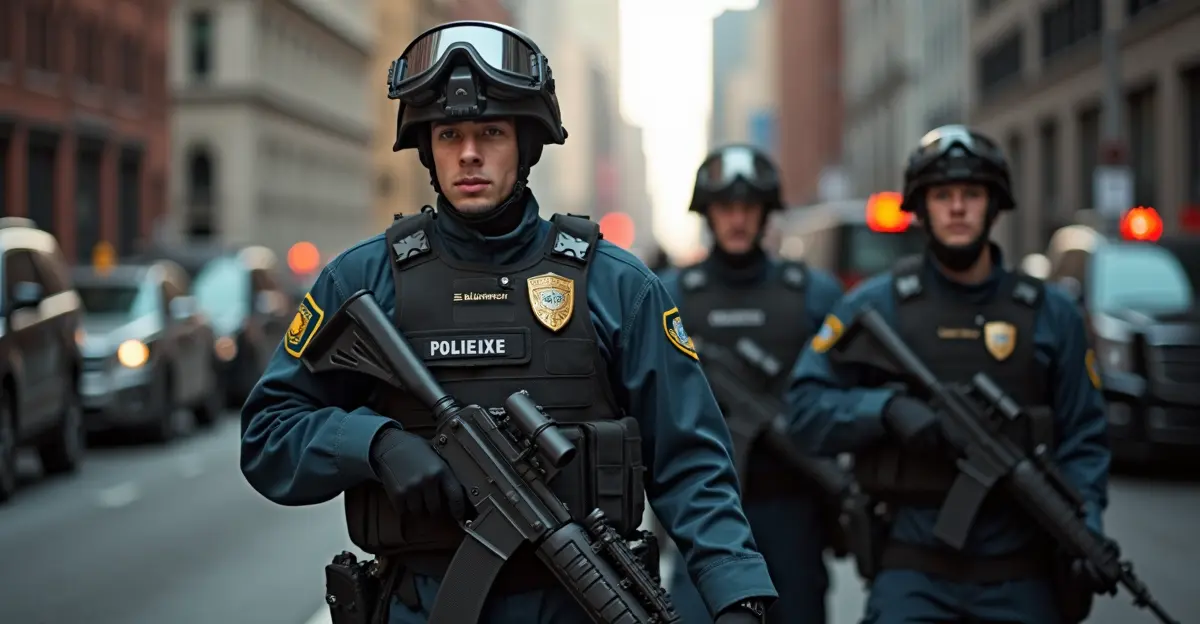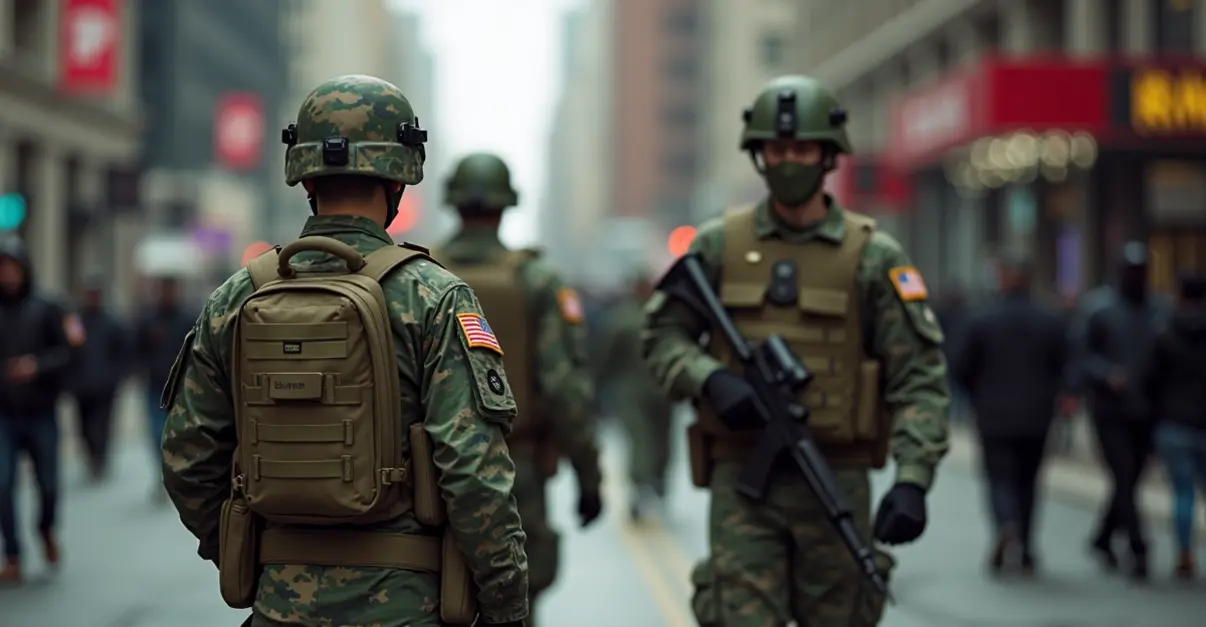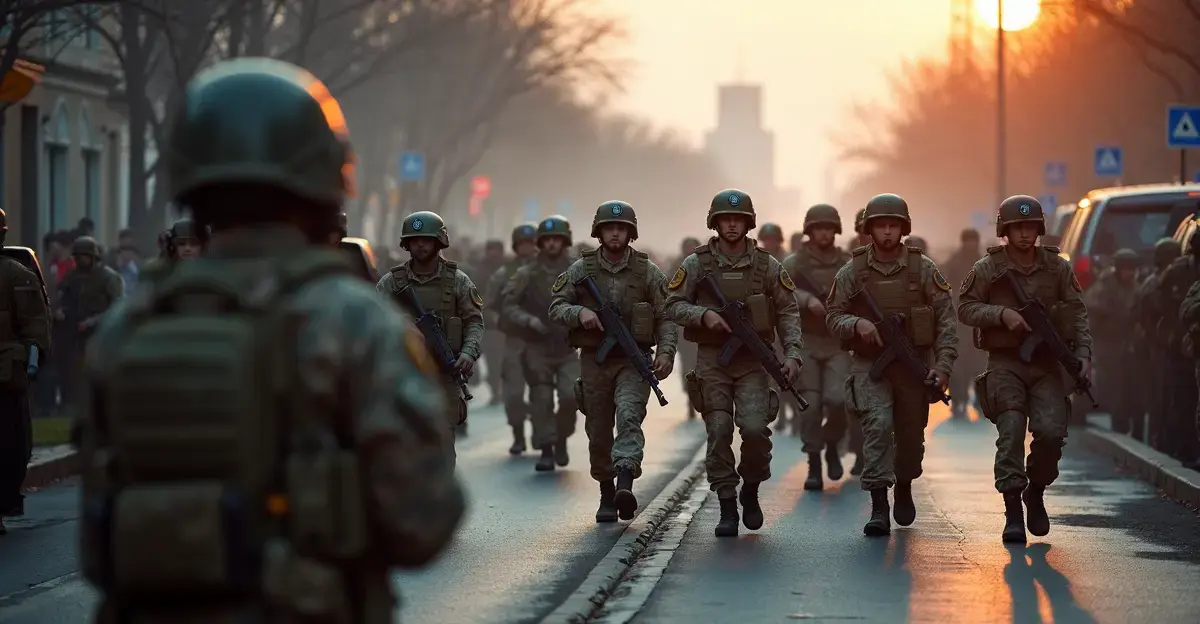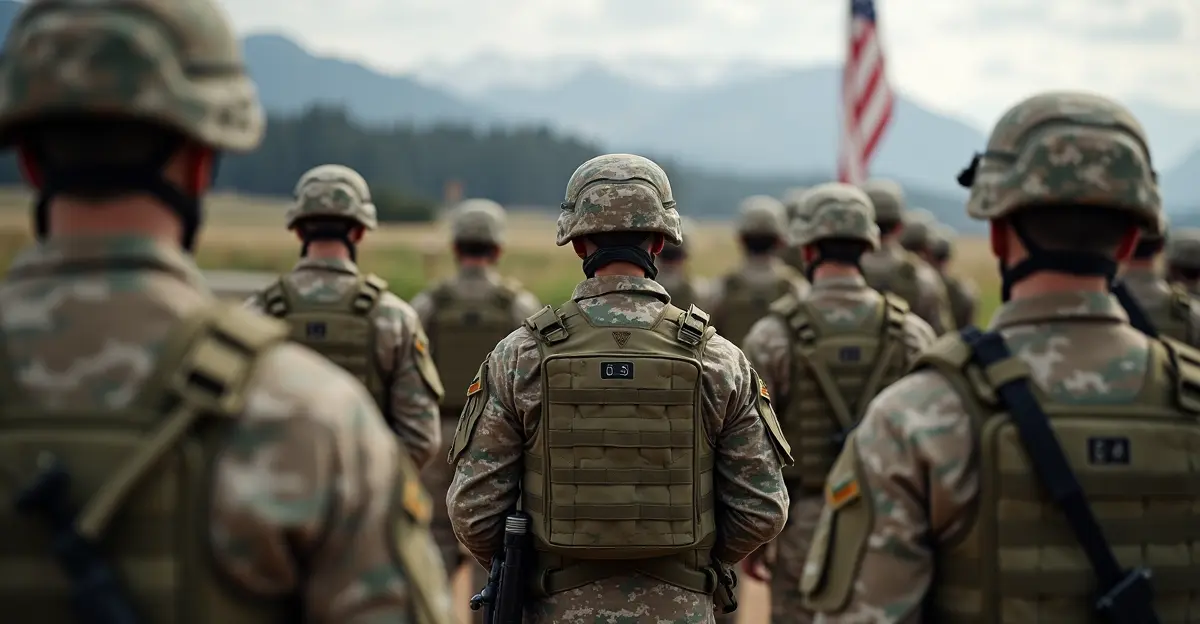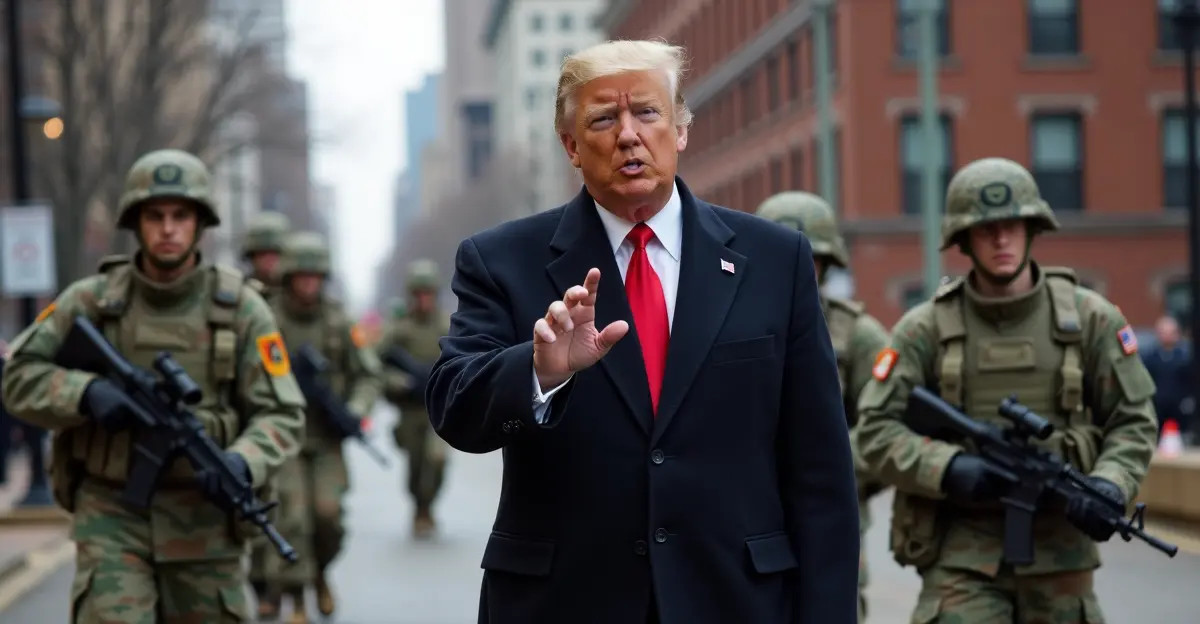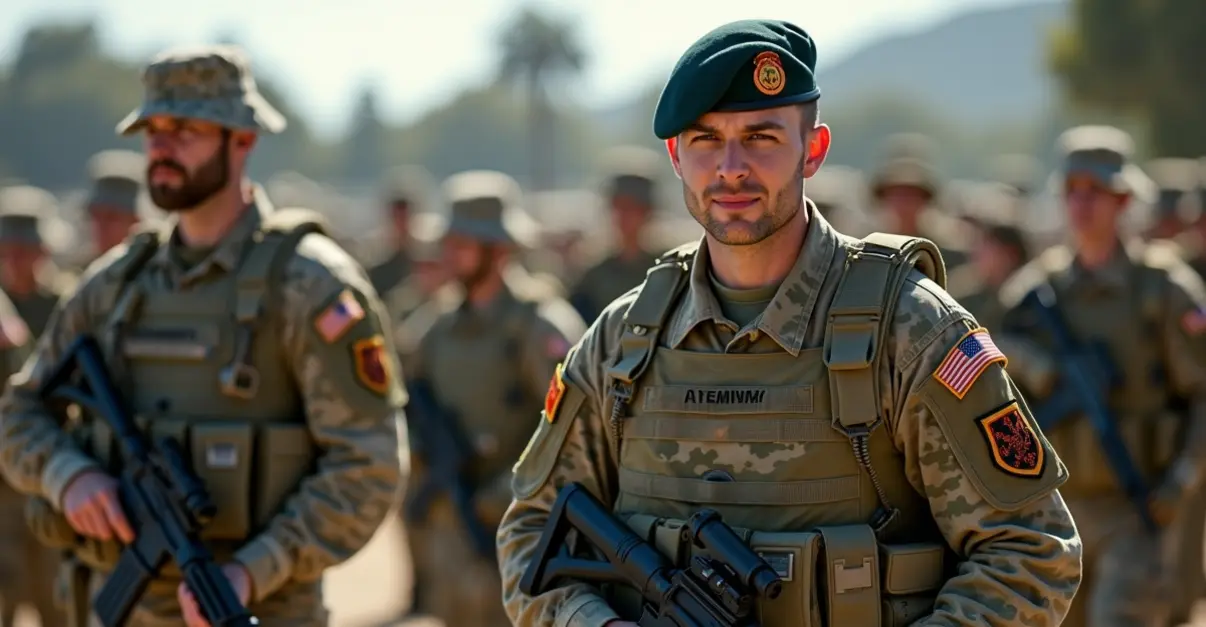Legal Battle Over Military Deployment in Chicago Reaches Supreme Court
In a dramatic escalation of the ongoing constitutional battle over presidential authority, former President Donald Trump has asked the U.S. Supreme Court to allow the deployment of National Guard troops in Chicago. The emergency appeal, filed by the Justice Department, seeks to overturn lower court rulings that blocked the Trump administration from sending hundreds of National Guard members to the Illinois city.
Constitutional Showdown Over Presidential Powers
The case represents the first time the Supreme Court will directly address Trump's authority to deploy troops within the United States. 'This is a fundamental test of presidential power versus judicial oversight,' said constitutional law professor Michael Dorf of Cornell Law School. 'The outcome could redefine the balance between executive authority and constitutional checks for decades to come.'
The Trump administration argues that federal officers in Chicago have faced threats, assaults, and what Solicitor General D. John Sauer described as 'frightening, pre-planned ambushes' while enforcing immigration policies. The administration contends that only the National Guard can provide adequate protection for federal personnel and property.
State Opposition and Legal Challenges
Illinois Governor J.B. Pritzker has vehemently opposed the deployment, calling it 'illegal, unconstitutional, and un-American'. 'We have not requested federal military assistance, and crime in Chicago has actually declined significantly this year,' Pritzker stated in a recent interview. 'This is political theater, not public safety policy.'
Federal Judge April Perry previously ruled that the administration failed to demonstrate sufficient evidence of a 'danger of rebellion' in Illinois that would justify military intervention under federal law. The 7th Circuit Court of Appeals partially upheld her decision, allowing the ban on National Guard deployment to remain while pausing the prohibition on federalization.
Broader Pattern of Military Deployments
The Chicago case follows similar deployments in other Democratic-led cities. According to Wikipedia documentation, Trump has already sent National Guard troops to Los Angeles, Washington D.C., Memphis, and Portland, often overriding objections from state governors. The administration has described these deployments as necessary to address protests, crime, and immigration enforcement.
'We're seeing a systematic effort to normalize military presence in American cities,' observed military law expert Rachel VanLandingham. 'The Posse Comitatus Act traditionally limits military involvement in domestic law enforcement, but this administration is testing those boundaries.'
Supreme Court's Conservative Majority
The case comes before a Supreme Court with a 6-3 conservative majority, including three justices appointed by Trump. The Court has previously supported the administration in emergency procedures when lower courts blocked presidential actions. Legal experts note that the conservative justices have generally shown deference to executive authority in national security matters.
The Supreme Court has requested responses from Illinois and Chicago officials by October 20, indicating the urgency of the matter. The decision could come within days, potentially setting a precedent for future presidential authority over domestic military deployments.
Political and Constitutional Implications
The case has drawn sharp political divisions. Democratic leaders have accused Trump of using military force for political purposes, while the administration maintains it's acting to protect federal interests. U.S. Senator Dick Durbin of Illinois called the potential deployment 'political theater' and warned 'this is how democracies die'.
As the legal battle unfolds, Chicago residents and officials await the Supreme Court's decision, which could determine whether American cities will see increased military presence as a routine feature of federal law enforcement.

 Nederlands
Nederlands
 English
English
 Deutsch
Deutsch
 Français
Français
 Español
Español
 Português
Português
